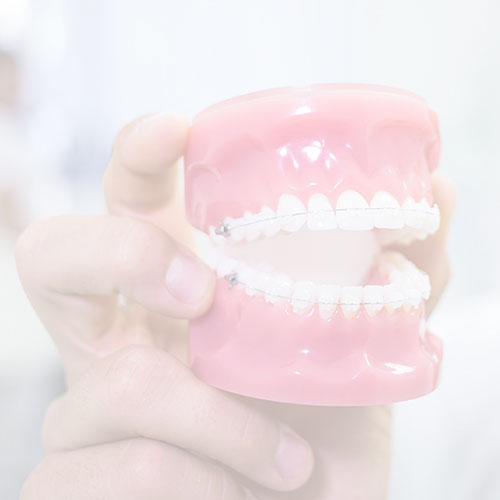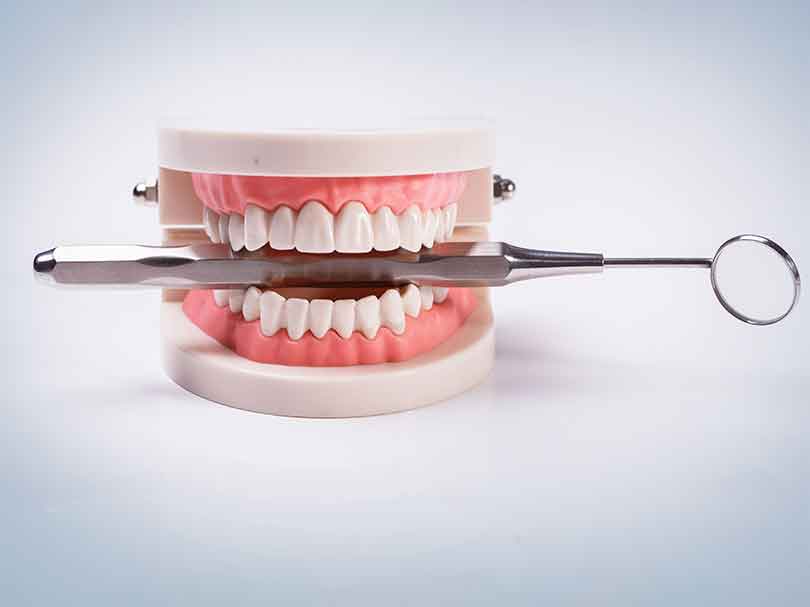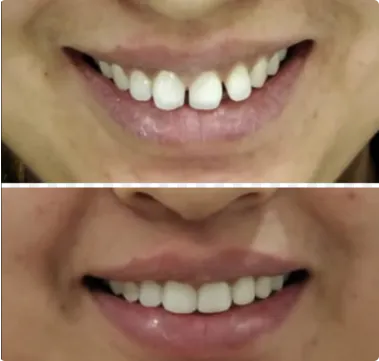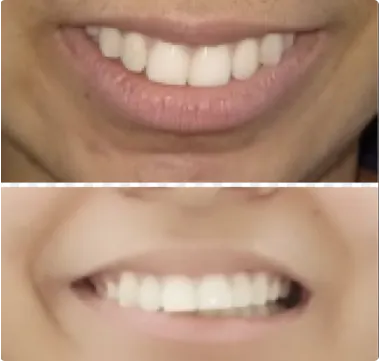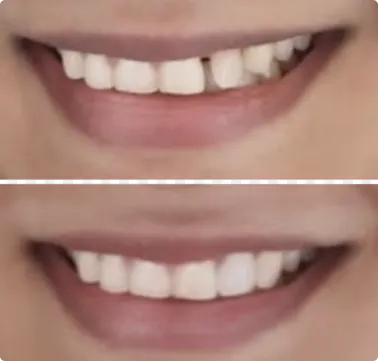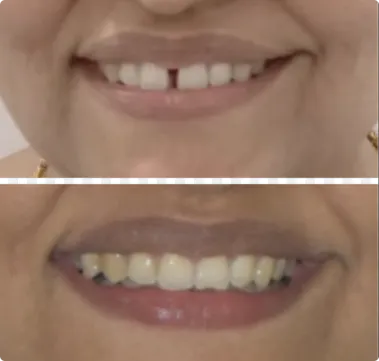What Are Complete Dentures?
Complete dentures is the process of replacing all the natural teeth in either of the jaws. Usually, complete dentures take place when an individual has lost all their teeth and due to an accident, injury or any other disease.
Advantages Of Complete Dentures
Improved Speech - Teeth is an important part of clear speech and complete dentures will help you get there. Let that mouth never stop!
Cost Effective - Complete dentures are quite cost effective as compared to other options such as dental implants. With an affordable price, it still manages to give you a natural and pleasing look.
Flexibility to remove dentures - Complete dentures gives you the freedom to remove or put it on anytime you wish to do so!
How do Complete Dentures Work?

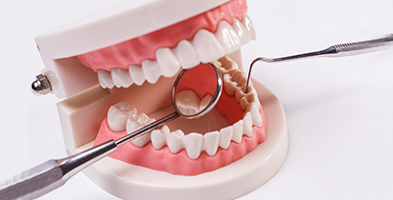
Diagnosis & initial impressions
A thorough oral examination, including X-rays, is conducted to evaluate new teeth's suitability and ensure gum and soft tissue health.
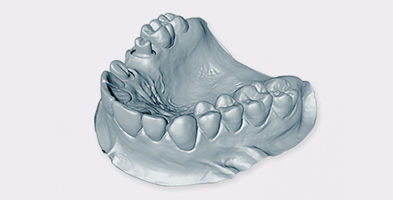
Border moulding and secondary impressions
A second impression is taken using a custom tray that fits your mouth, accurately capturing the shape and size of the mouth vestibule through border moulding.
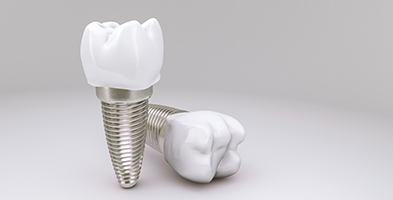
Jaw relation records and tooth selection
Dentists use a loose-fitting denture and wax rim to ensure accurate alignment and a comfortable fit of the upper and lower teeth when fitting dentures.
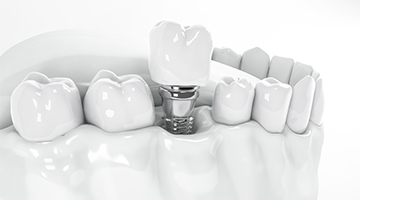
Wax - trial & denture try-in
During this appointment, you can make any last-minute adjustments to the size and finalise your dentures’ appearance.
Discover Your Perfect Smile with Complete Denture Treatment
Advantages of Complete Dentures

Improved Speech
Teeth is an important part of clear speech and complete dentures will help you get there

Cost Effective
Complete dentures are quite cost effective as compared to other options such as dental implants. With an affordable price, it still manages to give you a natural and pleasing look.

Flexibility to remove dentures
Complete dentures gives you the freedom to remove or put it on anytime you wish to do so!
Before & After Gallery
Our patient's Experiences
Frequently Ask Questions
Complete or full dentures are removable dental appliances that serve as a replacement for missing natural teeth and the surrounding tissues. These prosthetic devices are designed to restore oral function, improve aesthetics, and provide support to the facial muscles. Full dentures are typically recommended for individuals who have lost all of their natural teeth, either in the upper (maxillary) or lower (mandibular) arch, or for those who require replacement of all teeth in both arches. The fabrication of complete dentures involves a detailed process. It begins with the dentist taking precise impressions of the patient's gums and any remaining teeth. These impressions help create a custom-fit base for the dentures. The denture base is made from acrylic or other materials that mimic the appearance of natural gum tissue. The artificial teeth, also made of various materials like acrylic or porcelain, are carefully positioned on the base to recreate a natural-looking smile. Complete dentures rely on the support of the underlying gum tissue and the suction created between the denture and the gums for stability. While they may take some time for the wearer to adjust to, complete dentures are a functional and aesthetic solution for individuals missing all of their teeth.
Determining the need for dentures involves a comprehensive assessment by a dentist based on various oral health factors. One of the most common reasons for considering dentures is the loss of natural teeth due to decay, gum disease, trauma, or other dental issues. If you have multiple missing teeth or are edentulous (having lost all your teeth), dentures become a viable option. Dentists will assess the overall condition of your remaining teeth, gum health, and bone structure to determine the most suitable treatment plan. Additionally, the impact of tooth loss on your daily life can signal the need for dentures. Difficulty chewing, speaking, or a noticeable change in facial appearance due to tooth loss may indicate that dentures could improve your quality of life. Dentists will also consider your preferences and expectations, discussing the various types of dentures available, such as complete dentures or partial dentures, and whether they should be removable or fixed. Ultimately, the decision to get dentures is a collaborative one between you and your dentist, considering both the functional and aesthetic aspects of your oral health. Regular dental check-ups and consultations will help identify the need for dentures and ensure appropriate care for your specific situation.
Creating dentures involves a multi-step process that requires precision and expertise. The first step typically involves a comprehensive examination and consultation with your dentist. During this phase, your oral health is assessed, and impressions or moulds are taken of your mouth to capture the exact dimensions and contours needed for the dentures. This process may involve using advanced digital scanning technology or traditional moulds to ensure an accurate fit. Once the impressions are obtained, a dental laboratory fabricates a wax model or a digital prototype of the dentures. This allows for a preview of how the final dentures will look and function. Adjustments can be made at this stage to ensure the dentures meet your aesthetic preferences and provide optimal functionality. The next step involves the creation of the final dentures using durable materials. Complete dentures replace an entire arch of teeth, while partial dentures are designed to replace specific missing teeth, anchoring onto existing natural teeth. The dentures are custom-fitted to your mouth for comfort and functionality. The final stage involves fitting the dentures in your mouth and making any necessary adjustments to ensure a proper fit and comfort. Your dentist will provide guidance on how to care for and maintain your dentures. Regular follow-up appointments are crucial to address any issues, ensure proper function, and make adjustments if needed. By following your dentist's recommendations and practising good oral hygiene, you can maintain the longevity and effectiveness of your dentures.
Inserting dentures correctly is crucial for comfort, stability, and optimal function. Start by wetting the dentures with water to help create a better seal and make them more pliable. Hold the upper denture with both hands, positioning it at a slight angle. Gently place it onto the upper gums and then press it down, using a rocking motion to evenly distribute it. For lower dentures, hold them with both hands and use your thumbs to guide them into place. Avoid biting down forcefully during this process to prevent damage. When inserting dentures, it's essential to maintain a relaxed and controlled approach. Refrain from forcing them into place, as this can cause irritation and discomfort. If you encounter resistance, stop and reassess the positioning. Utilise a denture adhesive if recommended by your dentist, applying it sparingly according to the product's instructions. After inserting the dentures, perform various oral movements, such as biting and chewing, to check for stability and make necessary adjustments. If you experience persistent issues or discomfort, consult your dentist for professional guidance and adjustments to ensure a proper fit.
Dentures offer several benefits for individuals experiencing tooth loss. One primary advantage is the restoration of aesthetics and the enhancement of a person's smile. Dentures are designed to closely resemble natural teeth, providing a cosmetic solution that boosts confidence and self-esteem. Additionally, dentures contribute to improved speech, helping individuals articulate words more clearly, especially when tooth loss has affected pronunciation. Functional benefits are another crucial aspect of dentures. They restore the ability to bite and chew, allowing for a more varied and nutritious diet. This, in turn, promotes overall health by ensuring individuals can consume a balanced range of foods. Dentures also support facial structure by providing necessary support to the cheeks and lips, preventing the sagging and sunken appearance that can occur with tooth loss. Moreover, they are a non-invasive and cost-effective option for replacing missing teeth, offering a practical solution for individuals seeking dental restoration without undergoing surgical procedures. It's important to note that while dentures offer numerous advantages, proper care and maintenance, along with regular dental check-ups, are essential to ensure their longevity and continued effectiveness. Regular dental visits allow for adjustments and modifications to address changes in the oral structure and maintain optimal comfort and functionality.
The optimal cleaning of dentures is crucial for maintaining oral hygiene and preventing potential issues. Dentures should be cleaned daily to remove food particles, bacteria, and stains. The process involves using a soft-bristled toothbrush specifically designed for dentures or a mild denture cleaner. Avoid using regular toothpaste, as it can be abrasive and may damage the denture surface. Brush all surfaces of the dentures gently, including the gums, palate, and tongue side. Soaking dentures in a denture-cleaning solution overnight helps to eliminate bacteria and stubborn stains. It's essential to follow the manufacturer's instructions for both cleaning solutions and denture materials. Regular oral hygiene practices extend beyond cleaning dentures. It's recommended to rinse dentures after meals to remove loose debris. When not in use, dentures should be kept moist to prevent warping. This can be achieved by placing them in a denture-cleaning solution or even water. Avoid using hot water, as it may distort the shape of the dentures. Proper cleaning, combined with regular dental check-ups, ensures the longevity of dentures and promotes overall oral health. Dental professionals can provide additional guidance on effective cleaning techniques and recommend suitable products for denture care.
Directors & Cluster heads
Our administration and support staff all have exceptional people skills and Trained to assist you with all medical enquiries.

Dr. Kunal Shet
BDS, MDS, Orthodontics & Dentofacial Orthopedics, Implantologist (Masters in Cortical Implantology)
Dr. Kunal Shet is a distinguished dentist with an impressive academic background, including a postgraduate degree in Orthodontics and Dentofacial Orthopedics.

Dr. Riddhi Rathi Shet
BDS, MDS in Orthodontics & Dentofacial Orthopedics, Masters in Cortical and Immediate loading Implantologist (Italy), Masters in Advance Implantology (Smile USA)
Dr. Riddhi Rathi Shet is a highly qualified dental professional with an impressive academic background, including BDS and MDS degrees.

Dr. Sayali Jadhav
BDS, Fellowship in esthetic dentistry and Occlusion Certified Implantologist
Dr. Sayali Jadhav is a highly regarded Certified Implantologist and Esthetic Dentist. Her dental journey commenced in 2014 when she completed her BDS from Dr. DY Patil University.

Dr. Isha Jain
BDS
Dr. Isha Jain, a highly distinguished dentist who proudly graduated from Dr. D. Y. Patil Vidyapeeth, Pune in 2017.

Dr.Akhil Nair
BDS Implantologist
Dr. Akhil Nair is a highly accomplished Certified Implantologist, known for his remarkable contributions to the field of dentistry.

Dr. Akash Balaji Iyer
BDS, MDS Periodontology and Oral Implantology
Dr. Akash Balaji Iyer, an accomplished dentist specializing in Periodontics & Oral Implantology, is a vital part of Orthosquare's expert team.

Dr. Apurva Vaidya
BDS, MDS (Oral and maxillofacial surgery) Implantologist
Dr. Apurva Vivek Vaidya, BDS, MDS in Oral and Maxillofacial Surgery, stands as a distinguished dental professional with specialized expertise in oral and maxillofacial surgery.

Dr. Ruchi Bhansali
Dr. Ruchi Bhansali is a Dentist, Aesthetic smile design, Implantologist, and Periodontology.
Dr. Ruchi Bhansali is a highly qualified and compassionate dentist dedicated to delivering personalized dental care.

Dr. Divya Navsariwala Iyer
BDS. Specialist in Cosmetic Dentistry & Smile Designing.
Dr. Divya Navsariwala Iyer, a distinguished dentist and Smile Designing Specialist, holds the position of Regional Head for Pune at Orthosquare. With a BDS degree from Pravara Institute of Medical Sciences and a remarkable decade of clinical experience, she is recognized for her expertise in smile designing, aesthetics, and dental veneers.

Dr. Dhwani Doshi
BDS
Dr. Dhwani Doshi, BDS, is a distinguished dentist with a specialization in cosmetic dentistry, smile designing, and root canals, holding a certification as an FMR specialist. Graduating from MGM Dental College, Navi Mumbai, in 2013-17, she brings a strong academic foundation to her practice.

Dr. Nehal Gandhi
BDS
Dr. Nehal Gandhi, a distinguished Dental surgeon and Director at Orthosquare Multi-speciality Dental Clinic, stands as a prominent figure in the field of dentistry.

Dr. Shraddha Kambale
BDS
Dr. Shraddha Kambale holds the esteemed position of Regional Dental Director and is a highly proficient general dentist with over 16 years of practice.

Nilay Vakharia
BDS, MDS (Oral & Maxillofacial Surgery)Implantologist.
Dr. Nilay Vakharia, an OMFS (Oral & Maxillofacial Surgery) specialist, completed his post-graduation in OMFS from Pacific Dental College in 2017.
.webp)
Dr. Shail Kothari
BDS, Specializing in Implantology.
Dr. Shail Kothari is a highly skilled dental professional, specializing in Implantology and Endodontics. He completed his graduation from Dr. D. Y. Patil University in Mumbai and pursued his master's degree in Dentistry from esteemed institutions in Bangalore and the USA.
